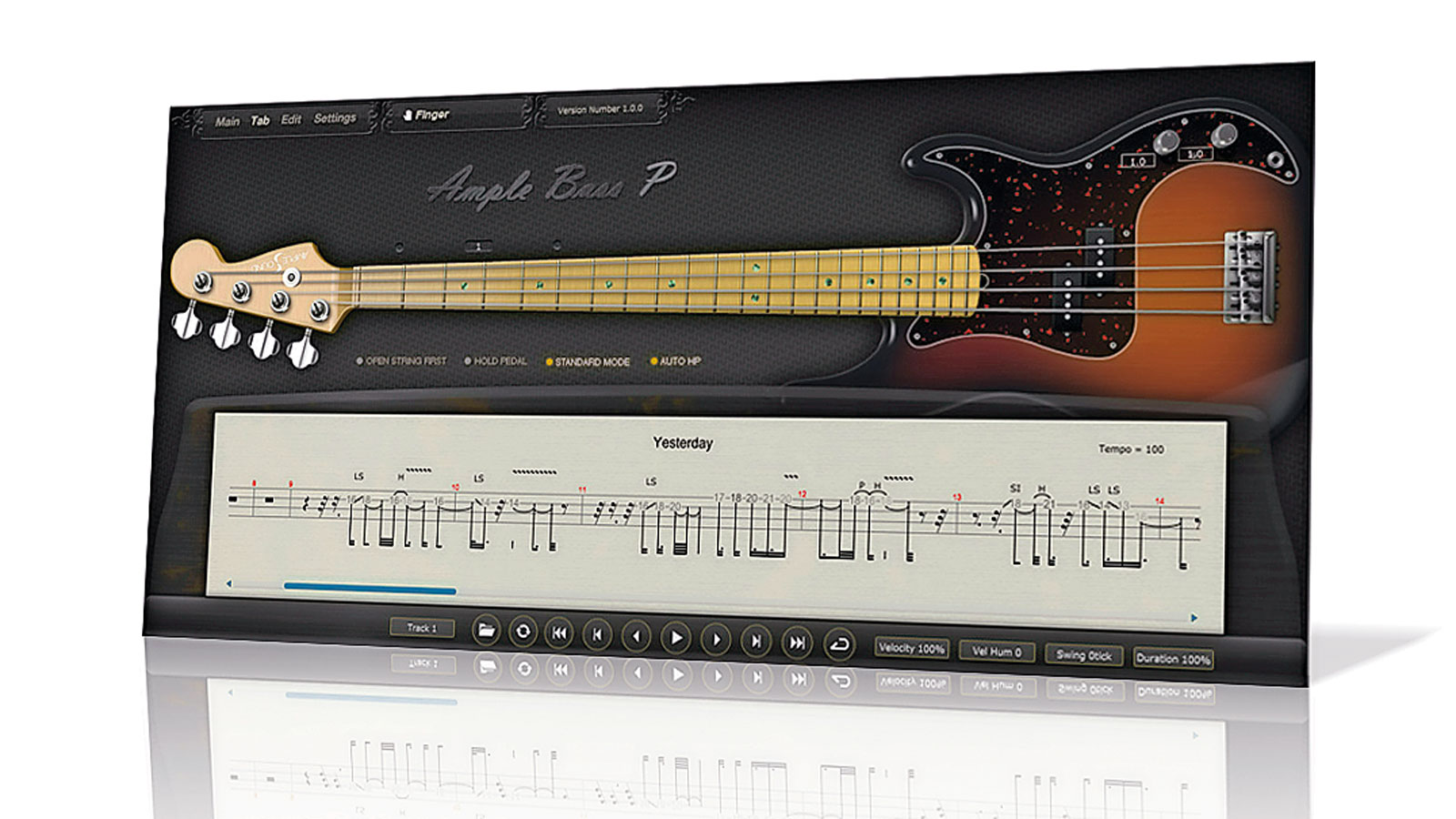MusicRadar Verdict
Ample Bass P is as good a virtual Fender Precision as we've ever come across, elevated above the competition by its flexible interface and impressively detailed soundbank.
Pros
- +
Flexible interface and impressively detailed soundbank.
Cons
- -
Let down only by the odd crash in standalone mode and a lack of effects.
MusicRadar's got your back
With Ample Bass P, renowned guitar ROMpler developer Ample Sound has expanded its repertoire to take in electric bass - specifically that most groovy of axes, the Fender Precision.
The Ample Bass P interface is, of course, largely the same as that of its six-stringed stablemates, losing just the Strum (no surprise there) and FX (so no compression, distortion, wah or chorus pedals, which is a shame) pages.
"Unless your music calls for particularly avant-garde playing techniques (or strums!), there's more than enough here to cover all likely situations"
The majority of the action takes place in the Main page, which gives access to the ten articulations that make up most of the 3.8GB sample library, from Sustain, Slap, Slide and Hammer On/Pull Off, to Natural Harmonic, Palm Mute, Tap and Staccato.
Unless your music calls for particularly avant-garde playing techniques (or strums!), there's more than enough here to cover all likely situations, and the level of performance realism that can be achieved using keyswitching between articulations is quite extraordinary.
Ample Bass P also includes a variety of ancillary sounds (slides, scratches etc) and a dedicated set of keys for repeating the last played note (making light work of fast repeats), triggering fifths and octaves, toggling fret buzz on and off (at adjustable note frequency) and more.
You can also specify an individual string to play any given note, and thanks to the engine's "rhombic" multisample selection system, repeated notes (even at the same velocity) always sound convincingly 'played'. Then there's the ability to mix in fret noise, release sounds and accentuation - all relatively subtle in their effect, but useful nonetheless.
Away from the Main page, the Sample Editor enables adjustment of the pitch and gain of individual samples (although we'd imagine that only very few users will actually ever need to go there), while the Tab page facilitates import and playback of passages in a range of tablature formats.
Want all the hottest music and gear news, reviews, deals, features and more, direct to your inbox? Sign up here.
The Settings page is where you set your master tuning, load and save presets and activate ABP's MIDI Out function for easy note doubling to other tracks in the host DAW.
Computer Music magazine is the world’s best selling publication dedicated solely to making great music with your Mac or PC computer. Each issue it brings its lucky readers the best in cutting-edge tutorials, need-to-know, expert software reviews and even all the tools you actually need to make great music today, courtesy of our legendary CM Plugin Suite.

